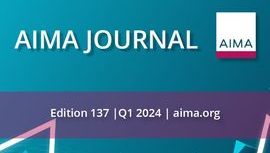Retail participation: A new frontier for private markets?
By Eric Chng, State Street
Published: 20 March 2023
The private markets landscape
The year 2022 posed some of the most significant challenges to the financial markets and economic growth in living memory. For the first time in two generations, the world entered a period of low growth and high inflation. Coming off the back of nearly a decade and a half of extremely low inflation and predominantly bullish markets since the end of the Great Financial Crisis of 2008, this has unnerved investors and policy makers who are unaccustomed to such a volatile economic environment.
This backdrop has also disrupted some longer-term trends. Private markets have seen exponential growth during the past decade. However, we are now seeing a sharp slow-down in fund raising activities.
At the beginning of this year, we released the findings from our annual Private Markets study, with responses from 480 institutional investors across North America, Latin America, Europe and Asia Pacific (APAC), that explores how institutional investors will allocate across private markets in 2023. Respondents observed that higher interest rates triggered by central banks globally to tame inflationary pressure makes leveraged investments less attractive. In APAC, 71% of investors cited this as a concern, largely in line with the global average of 69%.
However, approximately two thirds (64%) of the respondents in APAC also said they plan to continue their allocation to private markets in line with current targets, only slightly under the global response of 68%.
According to McKinsey’s 2022 report on the sector, private markets fundraising grew annually at 6.3% between 2016 and 20211, and our research suggests that this growth was structural and will continue beyond an economic downturn. The findings align with the observations in APAC. In Australia, for example, we expect that Superannuation Funds will continue to hold or increase allocations to private markets, particularly while the majority of members are in their accumulation phase. The key challenge for them would be an increased focus on deal quality and track record of the general partner (GP). However, we are seeing a slowdown in fundraising across APAC. The number of exits has fallen considerably, suggesting portfolio valuations still remain high. This creates several challenges for the GP ecosystem, but likely brings about opportunities for distressed players.
Private equity (PE) however, still remains the most favoured asset class within private markets, with 69% of institutional investors in APAC anticipating it to be their largest allocation over the next two to three years, which is higher than global investors (63%).
This could be explained by two main drivers. Despite the slow fund-raising environment and the increased focus on valuations and concentration risks, there are many asset owners in APAC who have just started or are considering starting a private markets allocation programme. This new wave of investors would typically rely on a fund of funds or larger and more well established GPs with a proven track record.
The difficult macroeconomic environment will also see a greater focus on distressed assets, which was again highlighted by our survey, with 74% of APAC respondents (in line with the global average of 75%) saying “tougher times” would yield more “bargains” in private markets.
Retail investor demand investment in private markets
In the APAC region, 61% of respondents said there is “strong demand from retail and high net worth investors for increased access to private markets”. Globally, 55% of the respondents agreed with this sentiment.
APAC respondents were largely in line with their global peers in their analysis of the reasons behind this growing demand, citing diversification (62%), yield (53%) and the desire to invest in successful companies before they announced their initial public offerings (53%).
This is a trend we have observed consistently in Australia and it presents opportunities for Superannuation Funds to provide a globally diversified portfolio to its members. This demand can also be seen clearly in the growth of listed investment trusts typically providing real estate exposures.
Despite this observation, only 36% of APAC investors agreed with the proposition that private markets would function like public ones in terms of liquidity and accessibility in 10 years’ time. But this was more than the global average of 29% and significantly more than respondents in the United States and the wider Americas (23%).
APAC investors were also clear about the difficulties in expanding this asset class widely to retail investors. Around three quarters (76%) said private markets need to be more transparent for this to become the case (72% of respondents globally said this), and 70% said there are a lack of suitable products and platforms (66% globally).
These concerns notwithstanding, more than half (53%) of respondents both globally and in APAC, felt that “despite higher fees and transparency issues, private markets have much to offer retail investors”.
How to give retail investors better access to private markets
APAC respondents were more inclined to favour investment trusts as the best vehicle for distributing liquid securitised private market assets to retail buyers. Half (50%) of the respondents said that this was the most suitable mechanism, compared to just over a third (36%) globally. Conversely, the favourite vehicle of the total respondent base was funds of funds (46%), which was the top choice of just 34% of APAC respondents.
Real estate was the asset class most respondents globally (60%) and in APAC (65%) felt was most appropriate for retail. APAC investors were considerably more inclined than the global average to see private equity as a good retail asset class (56% compared to 46%). This could be explained by the proliferation of investment trusts structures that are mainly listed in APAC, giving investors exposure to this asset class in a frictionless manner.
Another area APAC investors were more confident in than their global peers was digital asset tokenisation as a means of democratising private markets. Only 20% globally believed tokenised shares representing fractions of large illiquid assets, traded on blockchain or distributed ledger via smart contracts, would become mainstream in the next two to three years. However, 28% of APAC respondents felt this would be the case.
The use case for such tokenised private funds from a distribution perspective is not without its challenges, both from a liquidity-matching as well as secondary markets perspective. However, it is not surprising given Asia’s younger demographics that have a high percentage of savvy digital natives.
Conclusion
Private markets are not immune to the macroeconomic headwinds affecting capital market growth worldwide. However, while short term challenges might stymie investment in certain areas of the asset class, they do not present a threat to the long-term attractiveness that has driven its growth over recent years. Private markets also present opportunities to retail investors. However, the product, platform and regulatory environment will need to adapt before these opportunities can be properly realised.
Disclaimer
The information provided does not constitute investment advice and it should not be relied on as such. It should not be considered a solicitation to buy or an offer to sell a security. It does not take into account any investor’s particular investment objectives, strategies, tax status or investment horizon. You should consult your tax and financial advisor. All material has been obtained from sources believed to be reliable. There is no representation or warranty as to the accuracy of the information and State Street shall have no liability for decisions based on such information.
To learn how State Street looks after your personal data, visit: https://www.statestreet.com/utility/privacy-notice.html. Our Privacy Statement provides important information about how we manage personal information.
No permission is granted to reprint, sell, copy, distribute, or modify any material herein, in any form or by any means without the prior written consent of State Street.
©2023 State Street Corporation
All Rights Reserved








